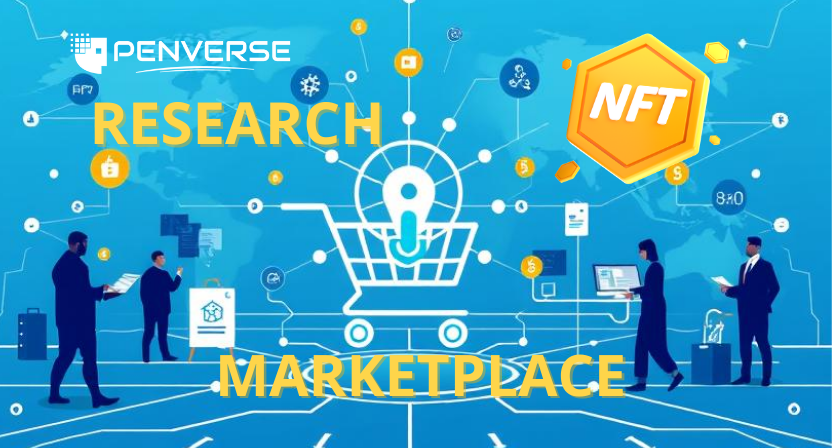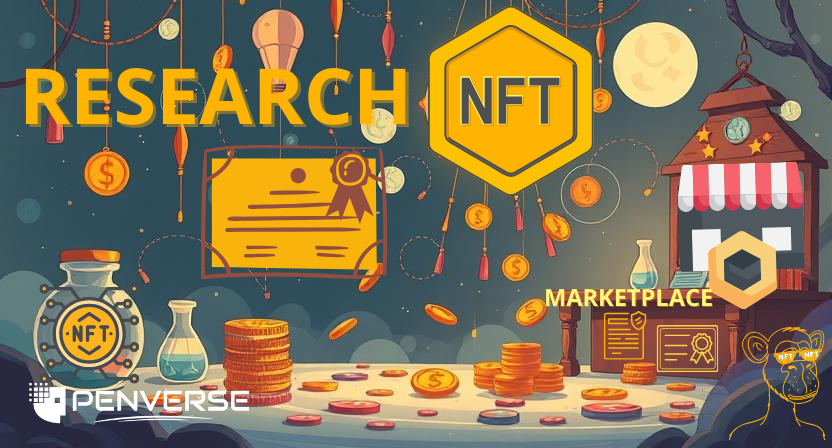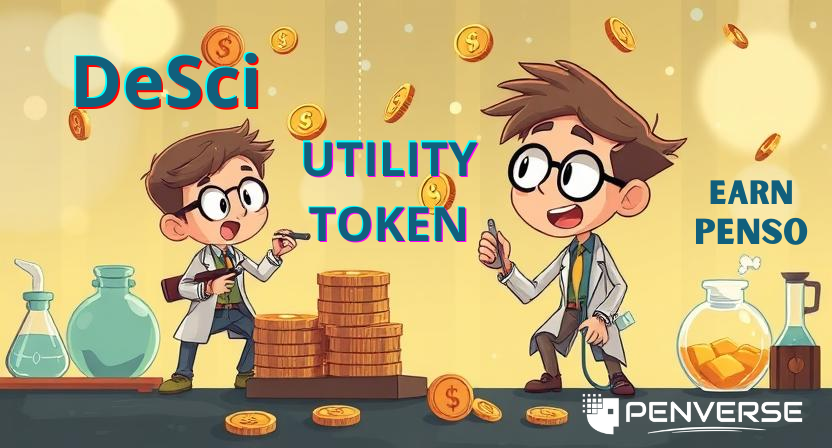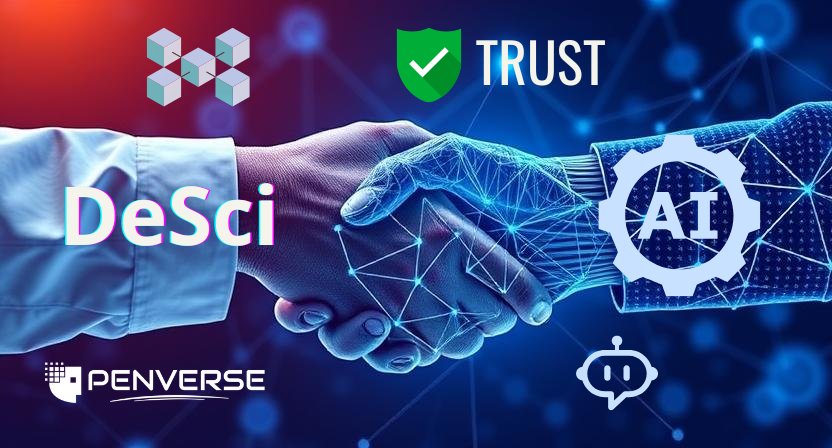Breaking Barriers: Unlocking Research for All!

Scientific research is meant to advance society, solve global problems, and expand human knowledge. Yet, for decades, access to research has been restricted by institutional barriers, financial paywalls, and bureaucratic funding structures. The traditional research model has left independent scientists, researchers from developing nations, and even the general public with limited access to critical discoveries that could benefit humanity. This exclusivity has slowed down innovation, created disparities in education, and reinforced a system where knowledge remains locked behind elite institutions.
But what if research were truly open? What if anyone, anywhere could contribute to and benefit from scientific discoveries? This vision is no longer a distant dream—Decentralized Science (DeSci) is making it a reality.
The Challenges of Restricted Research Access
The traditional research model, dominated by universities, corporations, and publishers, has several major limitations that prevent the free flow of knowledge:

1. Paywalls and Restricted Access
Most high-impact scientific journals charge exorbitant fees for access. Researchers without institutional affiliations often find themselves unable to read or cite crucial studies because they are locked behind paywalls. Even publicly funded research is frequently hidden behind these barriers, limiting the potential for new discoveries.
A study from 2023 found that 67% of scientific studies are locked behind paywalls, preventing millions of scientists, students, and innovators from accessing critical knowledge. This limitation creates an uneven playing field where only well-funded organizations can afford access to the latest research.
2. Bureaucratic and Exclusive Funding Systems
Scientific research requires funding, but the current system favors established institutions over independent researchers. Grant applications take months or years to process, and funding is often allocated based on institutional reputation rather than the merit of the research itself. 82% of global research funding is controlled by elite universities and government agencies, making it difficult for new ideas to receive support.
3. Slow and Opaque Peer Review Process
The peer review process is crucial for maintaining research integrity, but it is often slow, biased, and prone to gatekeeping. Reviewers from established institutions can delay or reject studies that challenge mainstream scientific views. Moreover, the process is opaque, with little accountability for bias or conflicts of interest.
4. Limited Collaboration Opportunities
Many researchers are confined within their institutions and lack opportunities to collaborate with experts from other countries or disciplines. Scientific silos prevent groundbreaking interdisciplinary work, slowing down progress in fields like medicine, artificial intelligence, and climate science.
Types of Research Users
Scientific research is not just limited to academics and institutions. The users of research come from diverse backgrounds and fields, each contributing to and benefiting from scientific discoveries in different ways. Below is a table outlining key research user groups and their roles in advancing knowledge:
| Research User | Role in Advancing Knowledge |
|---|---|
| Independent Scientists | Conduct research outside traditional institutions, often pushing the boundaries of innovation. |
| Students & Educators | Utilize research for academic purposes, teaching, and skill development. |
| Policymakers | Use scientific findings to shape regulations, public policies, and societal improvements. |
| Entrepreneurs & Innovators | Apply research to develop new technologies, startups, and market solutions. |
| Healthcare Professionals | Rely on medical and clinical research to improve patient care and treatment methods. |
| Citizen Scientists | Participate in collaborative research projects, often contributing valuable real-world data. |
Many groundbreaking discoveries do not come from traditional institutions alone but are often driven by individuals and smaller groups working on innovative solutions. However, these users often face barriers in accessing knowledge, securing funding, and collaborating with peers globally.
How DeSci Expands Beyond Traditional Science
Traditionally, research is conducted in controlled environments within universities, corporate labs, or government-funded institutions. While this structure ensures rigorous standards, it also restricts innovation to closed networks. Many discoveries that could benefit society remain unpublished due to institutional policies or commercial interests. DeSci breaks these barriers by allowing researchers to work beyond their labs, collaborate with global experts, and publish freely accessible research.

For example, independent climate researchers can now access global data sets without requiring university affiliations. Medical researchers working on rare diseases can collaborate with experts worldwide without institutional restrictions. Tech developers working on AI ethics can receive community funding to conduct research that benefits society rather than just corporate interests. These real-world applications show how DeSci is expanding research beyond its traditional boundaries, creating new opportunities for innovation, and ensuring that knowledge reaches everyone who needs it.
How DeSci is Unlocking Research for Everyone
Decentralized Science (DeSci) leverages blockchain, AI, and decentralized governance to eliminate barriers in research. By ensuring open access, transparent funding, and global collaboration, DeSci is revolutionizing the way science is conducted.
1. Open-Access Research
DeSci platforms remove paywalls by publishing research openly on blockchain networks, making it freely accessible to anyone. Unlike traditional academic publishers, these platforms ensure research remains open forever, free from institutional control or profit motives.
2. Decentralized Funding through DAOs
Instead of relying on government grants or private institutions, DeSci platforms use Decentralized Autonomous Organizations (DAOs) to distribute research funds. Scientists can propose projects, and the community votes on funding allocations, ensuring fair and transparent support for groundbreaking ideas.
3. AI-Enhanced Peer Review
Blockchain-based peer review systems provide faster, more transparent, and unbiased evaluation of research. AI algorithms assist in checking for plagiarism, reproducibility, and errors, significantly improving the efficiency of peer review.
4. Global Collaboration and Open Data Sharing
DeSci enables researchers worldwide to collaborate without institutional restrictions. Scientists can share data openly, work across borders, and build on each other's discoveries without bureaucratic hurdles. This accelerates progress in critical fields like medicine, environmental science, and technology.
Traditional Research vs. DeSci: A Comparative View
| Aspect | Traditional Research | Decentralized Science (DeSci) |
|---|---|---|
| Access to Research | Paywalled, restricted | Open-access, free for all |
| Funding Model | Controlled by institutions | Community-driven DAOs, crypto grants |
| Peer Review | Slow, biased, institutional control | AI-powered, transparent, decentralized review |
| Collaboration | Limited by university networks | Global, open, interdisciplinary partnerships |
| Data Ownership | Retained by institutions and publishers | Researchers retain full ownership |
| Publication Costs | Expensive journal fees | Free or low-cost blockchain publication |
The shift from institution-controlled research to community-driven, transparent research is reshaping the way discoveries are shared and applied.
Real-World Examples of DeSci in Action
1. Open COVID Research Initiative
During the COVID-19 pandemic, researchers worldwide collaborated openly, sharing virus genome sequences and treatment data in real time. This accelerated vaccine development and treatment strategies, proving that open research can save lives.
2. VitaDAO: Community-Powered Longevity Research
VitaDAO is a blockchain-based organization funding longevity research through community governance. Scientists propose projects, and token holders vote on funding allocations, removing institutional gatekeeping.
3. DeSci Labs and ResearchHub
- DeSci Labs is building decentralized infrastructure for secure and open scientific data sharing.
- ResearchHub rewards researchers with cryptocurrency for publishing and reviewing scientific work, creating an incentive for open collaboration.
These projects demonstrate that DeSci is already breaking down barriers in research, making knowledge more accessible to everyone.
How Penverse is Leading the Way in DeSci
While many DeSci initiatives focus on specific aspects of open research, Penverse provides a holistic ecosystem that integrates AI, blockchain, and decentralized funding to unlock research for all. Unlike other platforms, Penverse goes beyond simple data sharing by actively revolutionizing how research is conducted, validated, and rewarded.

With Penverse, the future of research is no longer locked behind gates—it is accessible to everyone.
The Future of Open Research Starts Now
The days of exclusive, paywalled, and bureaucratic research systems are numbered. With DeSci and platforms like Penverse, knowledge is becoming a shared global resource, fostering innovation and accelerating discovery.
Science should belong to everyone—not just to institutions, corporations, or governments. Through blockchain transparency, AI automation, and decentralized funding, we are witnessing a revolution that ensures scientific progress benefits all of humanity.




